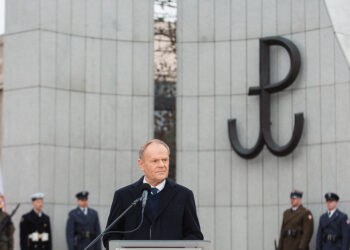Over the past few decades, Poland’s economy has experienced a remarkable surge, catapulting the nation into the ranks of Europe’s largest economies. According to a recent analysis by the Spanish business portal El Economista, Poland has become the fifth-largest economy in the European Union, a transformation that is drawing global attention.
“Poland’s economy resembles a steamroller,” El Economista writes, referring to the country’s steady and relentless growth. The portal notes that Poland’s gross domestic product (GDP) per capita, adjusted for purchasing power parity, has outpaced nations that once had stronger economies, such as Venezuela and Argentina. Poland is now on the verge of surpassing Spain’s GDP, with analysts predicting that by the end of this decade, it could even challenge Italy’s economy.
A Transformation Rooted in the 1990s
The article highlights that Poland’s transformation began in the 1990s with significant economic reforms, which laid the foundation for long-term growth. During this period, Poland transitioned from a centrally planned economy to a free market, initiating sweeping changes that would pave the way for its current success.
Foreign investments, coupled with substantial European Union funding after Poland’s accession to the EU in 2004, played a crucial role in driving economic expansion. Access to European markets and the integration into the EU’s political and economic framework gave Poland unprecedented opportunities for development, which it capitalized on effectively.
The report credits Poland’s rise to its well-implemented fiscal policies and the strategic use of EU funds for infrastructure and innovation. Poland has also benefited from its highly educated workforce, relatively low labor costs, and proximity to major markets, making it an attractive destination for foreign investors.
A Post-Election Economic Outlook
The article also touched on Poland’s political landscape, noting that the results of the recent parliamentary elections on October 15, 2023, have potential economic consequences. Citing an ING Bank report, El Economista highlights that the new government, led by Donald Tusk, is expected to focus on investment, a strategy that could further boost Poland’s economic standing in Europe.
Tusk’s return to power is seen as favorable for business, with an emphasis on stability and encouraging both domestic and foreign investment. Analysts believe that with continued strategic investments and sound fiscal policies, Poland’s economic engine will continue its robust performance.
Military Growth Mirroring Economic Strength
Poland’s rising stature is not limited to the economic sphere. The El Economista report also points out that Poland is rapidly climbing the ranks in military power, projecting that it will soon have the most powerful army in Europe, surpassing both France and the United Kingdom. This military expansion is a clear reflection of the country’s determination to safeguard its sovereignty and avoid being influenced by larger powers, as was historically the case with Russia and Germany.
In the context of growing geopolitical tensions in Europe, particularly with Russia’s invasion of Ukraine, Poland’s military buildup is seen as both necessary and inevitable. The report indicates that Poland’s defense investments are part of a broader national strategy to secure its place as a leading force in both the economic and military arenas.
A New Era for Poland’s Global Influence
Poland’s economic trajectory reflects its ambition to shed its post-Cold War image as a peripheral player in European affairs. The country’s shift from being “poorer than Venezuela or Argentina” in the 1990s to becoming one of the EU’s economic powerhouses is one of the most dramatic transformations in recent European history.
As the country’s economy continues to grow, Poland is positioning itself not only as a leading player in Europe but also as a key global economic and military force. This rapid development signals a new era in which Poland, once seen as a nation at the margins of European politics and economics, has become central to the continent’s future.
Poland’s rise is far from over. With sustained investment, continued political stability, and strategic use of resources, analysts expect the country to keep moving up the ranks of Europe’s economic powers. By the end of the decade, it could challenge Italy for its position, making Poland a major player in both European and global economic discussions.
This transformation underscores Poland’s potential to lead not just in economics, but also in security and innovation, further shaping the future of Europe.


















